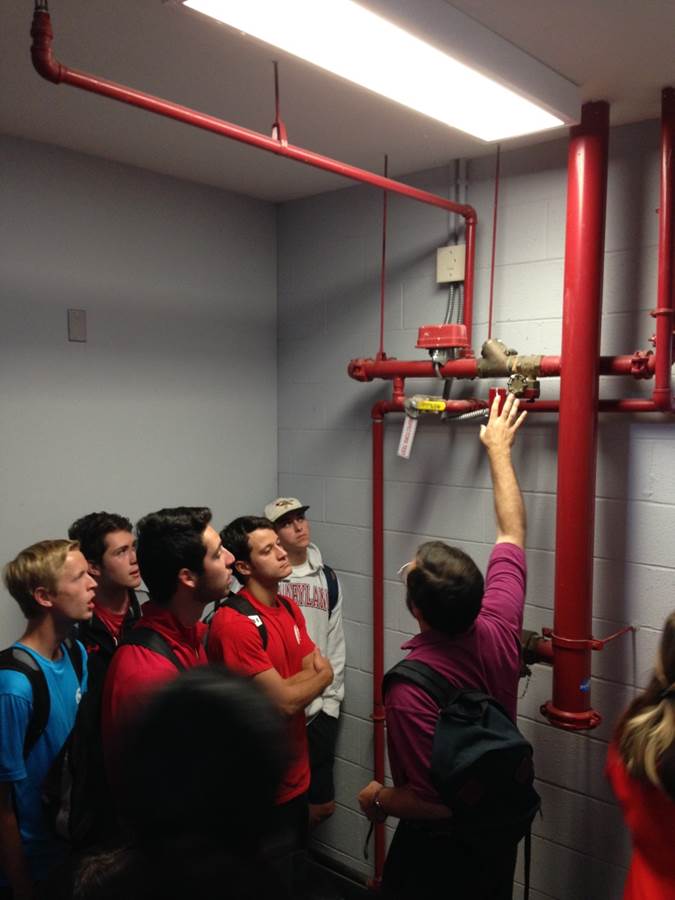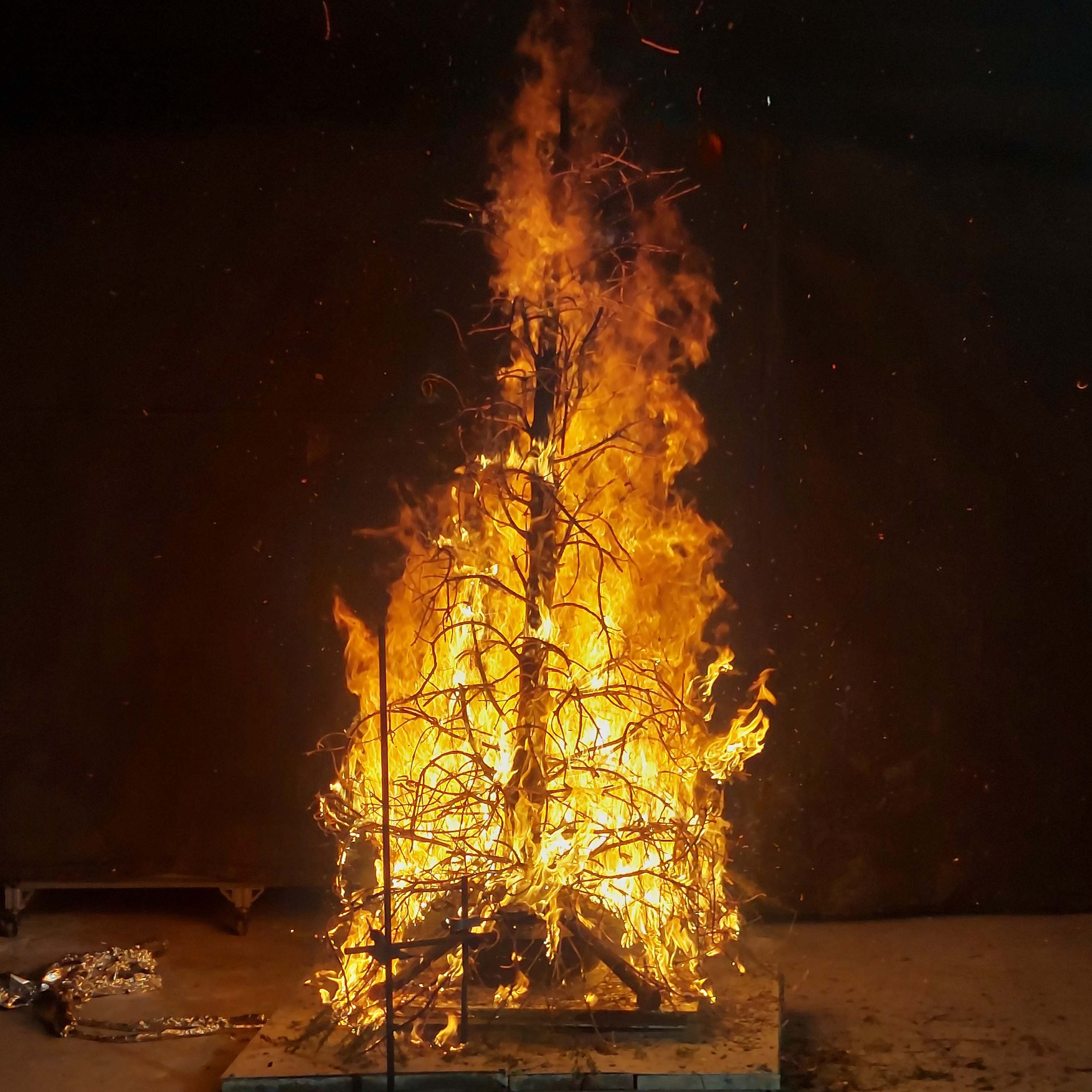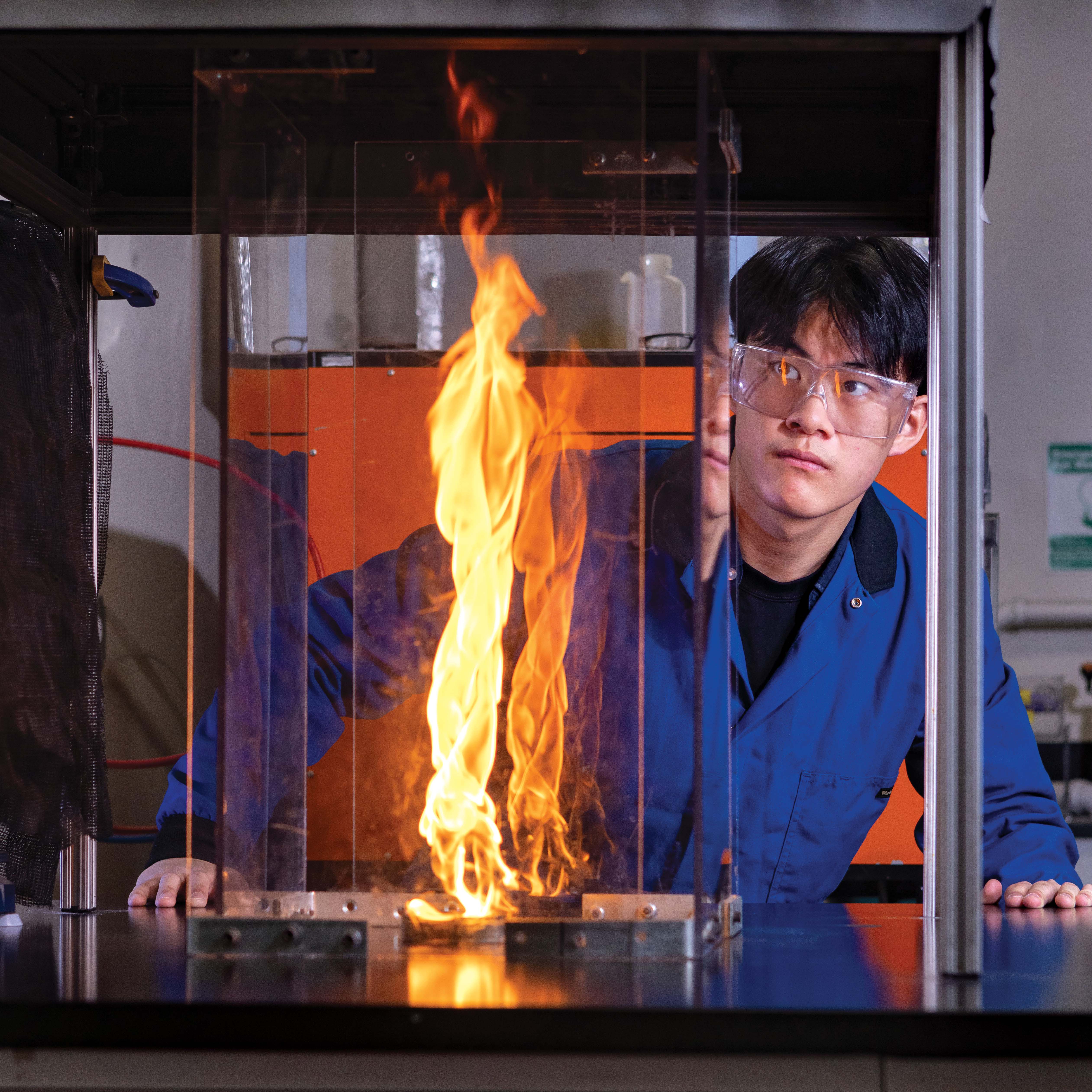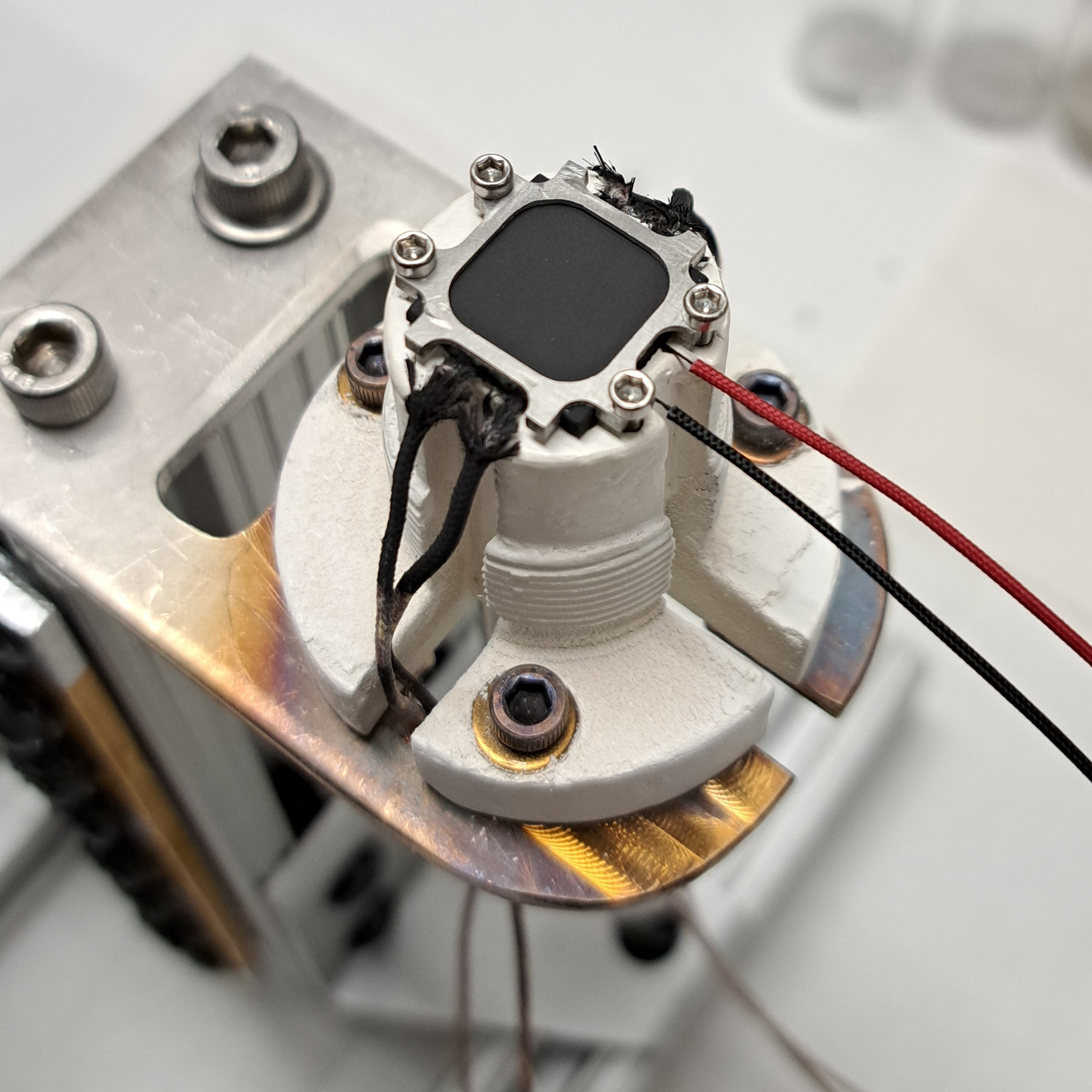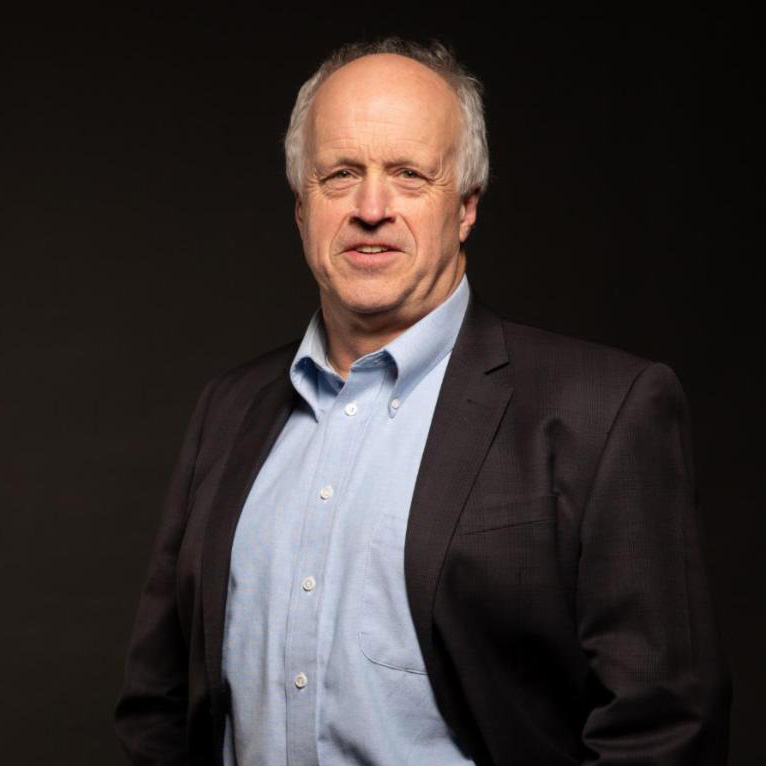News Story
FPE Engineers Conduct Fire-Safety Program in Israel
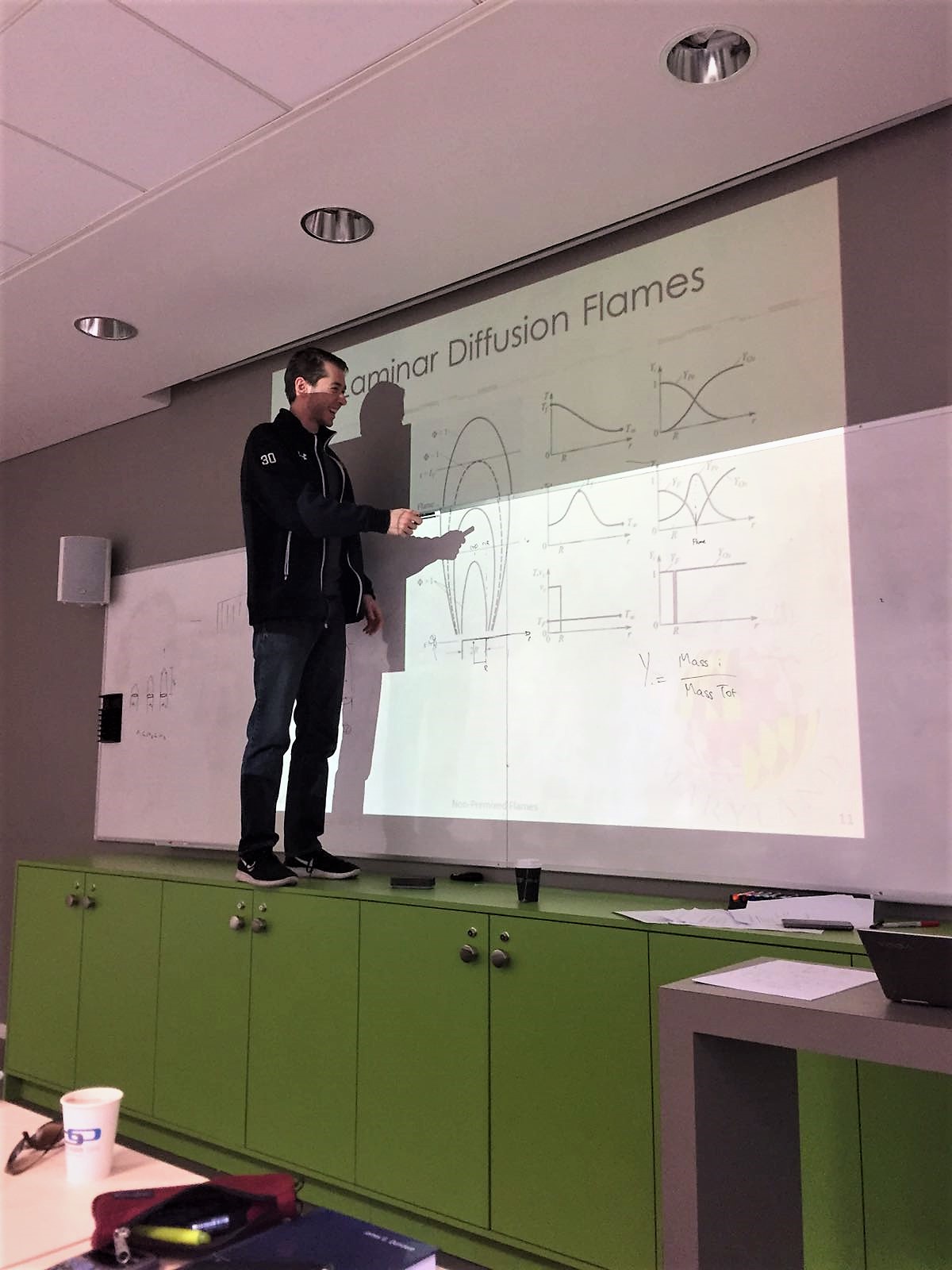
Isaac Leventon lectures to a class in Tel Aviv on fire dynamics.
Alumni of the University of Maryland (UMD) Department of Fire Protection Engineering (FPE) are teaching a series of fire protection courses in Tel Aviv, Israel, which started in April and run through November. Ken Isman (FPE Clinical Professor, FPE ’86), Isaac Leventon (NIST Research Scientist, FPE M.S. ’11), and William Koffel (Principal at Koffel Associates, FPE ’79) are each scheduled to teach two subjects in the curriculum, including Fire Dynamics and Structural Fire Protection Engineering (Leventon), Fire Suppression Systems and Life Safety (Isman), and Fire Alarm and Smoke Control Systems (Koffel).
The idea for the program began three years ago when Israeli engineers asked Isman to design six seminars for their professional development, similar to the subjects currently taught to FPE majors at UMD. The entire program was organized in association with the Israeli Association of Construction & Infrastructure Engineers and S Netanel Engineers & Consultants. Ideal program participants are those who already have an engineering degree and understand fluid flow, physics, calculus and chemistry. FPE instructors build on this background by providing specific, fire protection information and how to apply problem-solving techniques, primarily to construction projects.
“I was impressed with the effort of these students,” said Leventon, who taught the first two courses. “They absolutely did their best to keep up with the material despite how much we covered, the steep learning curve, new (or unused) math, a second language, and still working full-time jobs in the three weeks between lectures.”
Each subject comprises 40 hours of instruction and four to six weeks of homework (via distance learning), followed by an additional two weeks of training on Israeli building and fire codes by S. Netanel Engineers, the program host and sponsor. Participants who complete all eight subjects will receive a certificate of completion from UMD.
“The hope,” said Ken Isman, “is that this certificate will be used by the Israeli governmental body that licenses engineers as a way to limit people who practice fire protection engineering without having a degree in the subject, thereby giving legitimacy to certified FPE practitioners, and our program.”
Isman continued, “The courses are generally going well, although it’s been uniquely stressful and busy given the setup of the course - one week lecturing eight hours per day (four for each subject), three weeks of distance learning, and then another week of full day lectures. The logistics of pulling this off have been significant – just figuring out what we had to do in order to get the work visas that we needed was a challenge!”
Leventon echoes that assessment. “We found that, for my two classes at least, we simply need more time to pull this all off. Learning this material takes time – to let lectures sink in, to work on practice problems, to remember old math from university, to process the material in a second language. Preparation and student effort were both there but, more than anything, additional time together would have helped.”
Indeed, time is precious. The built environment is constantly changing; thus, the challenges faced by FPEs are continuously evolving, which means the program must advance accordingly.
“This Israel program is just one more way that we can have a positive impact on the field – improving the competency and proficiency of those who work as FPEs is a good thing, regardless of where they live and work,” said Leventon. “It feels good to be involved in something that has a positive impact, in the U.S. and abroad, too. This is just one more way that UMD can establish itself and continue to advance as a leader in the fire protection engineering field.”
Published September 9, 2018
